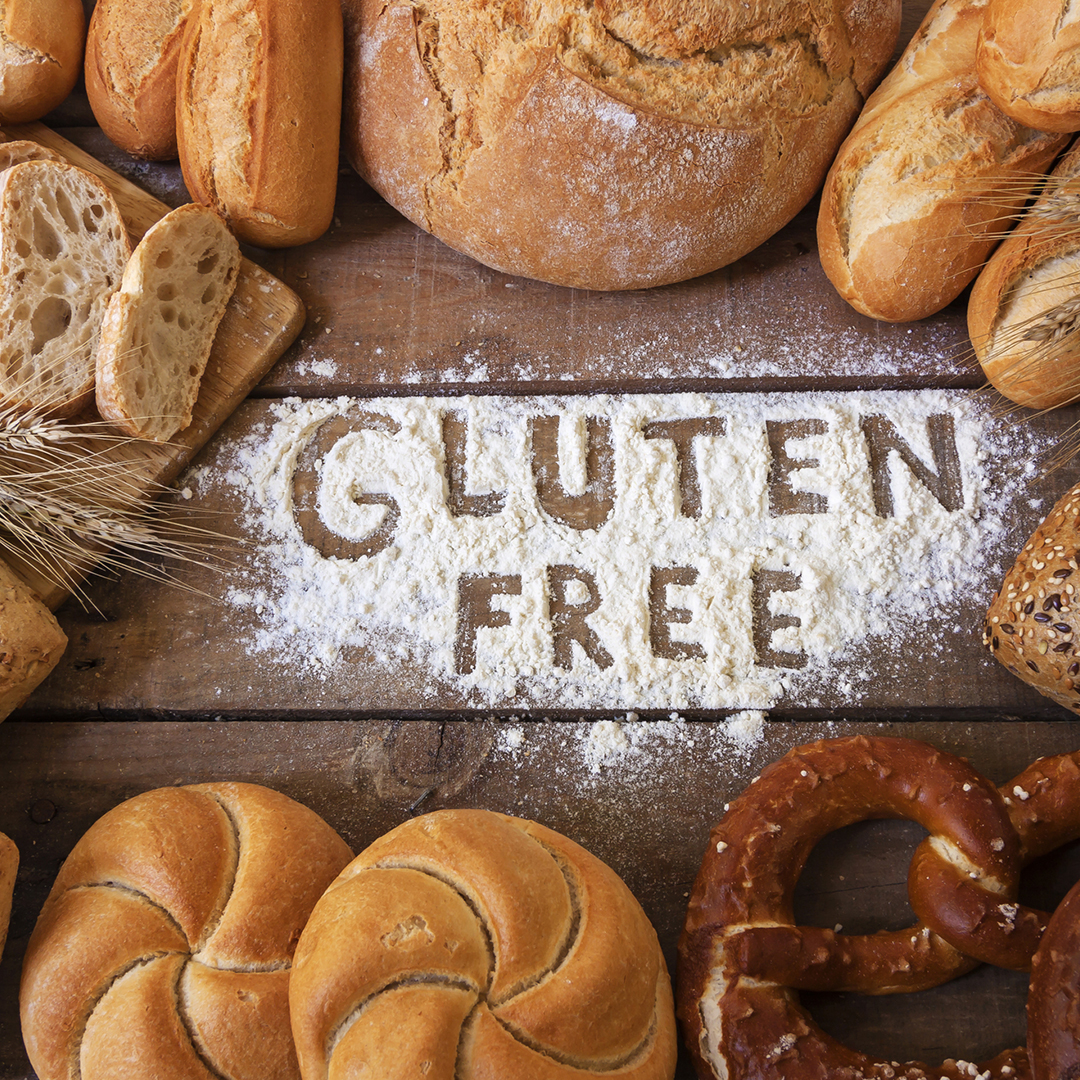There’s a lot of ‘hype’ around sticking to a free from diet for weight reasons as opposed to health reasons, such as an allergy or intolerance but is a free from diet really a healthier way of eating and a guaranteed way to lose weight?
So many of us have now boycotted gluten and turned our backs on dairy under the belief we’re doing the best thing for our body but are we actually helping our waistlines and our insides by avoiding key food groups or could we be doing ourselves more harm than good?
Food Allergies & Intolerances in the UK
Some people have no choice but to avoid ingredients such as gluten or milk for medical reasons. A report by the Food Standards Agency predicts around 2 million people in the UK have a food allergy of some kind including around 600,000 with Coeliac Disease, an auto-immune disease in which gluten must be avoided.
For those with food allergies, intolerances and other food-related medical conditions, there is no option but to avoid all traces of their problem food. The 14 most common allergens are:
- Cereals containing gluten (wheat, barley and rye)
- Milk
- Eggs
- Crustaceans
- Fish
- Peanuts
- Soya
- Tree Nuts
- Celery
- Mustard
- Sesame
- Sulphur Dioxide
- Lupin
- Molluscs
So, for those allergic to the above, they have to carefully avoid eating these ingredients as well as avoiding foods that may contain them or have been subject to cross-contamination, but, if you have no reason to avoid them, is there any benefit in doing so?
Pros and Cons of Eating a Free From Diet
The main foods we see people ditching from their diets for ‘health’ nowadays are gluten, milk and eggs, with many people self-diagnosing digestion problems associated with these ingredients or simply believing you can lose weight quicker by not eating them.
It is quite widely known that cutting out entire food groups from your diet can deprive the body of essential nutrients required for normal functionality, growth and development and this is the same with avoiding dairy and gluten.
Gluten is found in most carbohydrates such as pasta and bread, both of which provide the body with slow-releasing energy to help you through the day. Gluten is also a great source of fibre to help with bowel health, lowering cholesterol and controlling blood sugar.
Dairy is also something that has a whole host of health benefits, such as being a source of both Vitamin D and calcium which are required for strong teeth and bones and Vitamin D is even linked to mental health. Eggs are a fantastic source of protein, particularly if you’re vegetarian, so by avoiding these three food types, you’re making it more difficult to gain all these nutrients and associated health benefits as the free from alternatives generally don’t hold the same amounts of nutrients.
Avoiding food groups can also lead the body to become resistant to them when you do eat them. For example, if you cut gluten out of your diet for health or weight reasons, when you do eat it, the body is likely to find it more difficult to digest and you are likely to experience digestive symptoms. These aren’t necessarily due to an intolerance or allergy but purely because the body isn’t used to those foods.
Calories – Free From VS Regular
Gluten free is often thought of as being the healthy option but how do some key foods compare in terms of calories, fat, sugar and salt?
Bread:
| Per 100g: |
Regular Wholemeal Bread |
Gluten & Milk Free Brown Bread |
| Calories |
234 |
211 |
| Fat |
2.9g |
4.5g |
| Sugar |
0.9g |
0.7g |
| Salt |
0.9g |
1.2g |
Crumpets:
| Per Crumpet: |
Warburtons Regular |
Warburtons Gluten Free |
| Calories |
97 |
123 |
| Fat |
0.4g |
1.0g |
| Sugar |
1.1g |
1.1g |
| Salt |
0.81g |
1.04g |
Penne Pasta:
| Per 100g: |
Regular Penne Pasta |
Gluten Free Penne Pasta |
| Calories |
176 |
355 |
| Fat |
0.7g |
1.0g |
| Sugar |
1.1g |
0.5g |
| Salt |
0.1g |
0.1g |
Milk:
| Per 100ml: |
Semi Skimmed Milk |
Soya Milk (unsweetened) |
| Calories |
50 |
33 |
| Fat |
1.8g |
1.8g |
| Sugar |
4.8g |
0.3g |
| Calcium |
124.0mg |
120.0mg |
So, we can see that a lot of gluten free alternatives are in fact higher in calories, as well as almost always being higher in fat and salt and for dairy, the amount of calcium per 100ml of dairy free milk is also less than your regular semi-skimmed.
As well as the nutritional value, free from foods are often filled with additives and unusual ingredients to try and improve the taste, many of which aren’t necessarily very good for us if we don’t need to be eating them. For example, a supermarket own-brand wholemeal bread is made using wholemeal wheat flour, water, yeast, dextrose, palm oil and a flour treatment agent whereas a similar gluten free brown loaf from the same supermarket is made using rice flour, tapioca starch, maize starch, potato starch, bamboo fibre, rapeseed oil, dried egg whites, psyllium husk powder, humectant, yeast, stabilisers, sugar, salt, apple extract, buckwheat flakes, preservatives and cocoa powder.
The Cost of Being Free From
As well as the health implications of unnecessarily sticking to a free from diet, there’s also a massive impact on your bank balance as free from food is simply so expensive.
A supermarket 800g loaf of wholemeal bread is just 59p while a gluten free loaf of brown bread, by the same supermarket is £1.80 for just 550g. A 1kg bag of penne pasta from a supermarket own brand costs just £1 whereas a 500g bag of gluten free penne pasta from the same shop is £1.00, meaning you get half the amount for the same price.
If you fancy a treat, you can pick up a 262g pack of McVities chocolate Hobnobs for £1.50, whereas the gluten free version by McVities will cost you £2.19 for a 150g pack, which contains approximately 8 biscuits. What about chocolate digestives? A supermarket own brand pack of gluten free chocolate digestives costs £1.30 for a 200g pack, whereas the same supermarket same their regular own brand chocolate digestives for 60p for 300g.
Free from foods cost more to produce due to the ingredients and manufacturing methods, so although you usually get less, you’ll probably pay more, so it really is a serious price to pay if you don’t need to!
So, is a free from life a healthy life? Not really if you don’t need to be eating that way! Foods that are naturally gluten free such as rice, lentils and pulses are all great additions to your diet but as for purposely going gluten free for no reason, it doesn’t really hold any benefits!
If you think you might have an issue with a food group, then be sure to see your GP for tests before cutting the food out so you can ensure you’re doing it properly!















